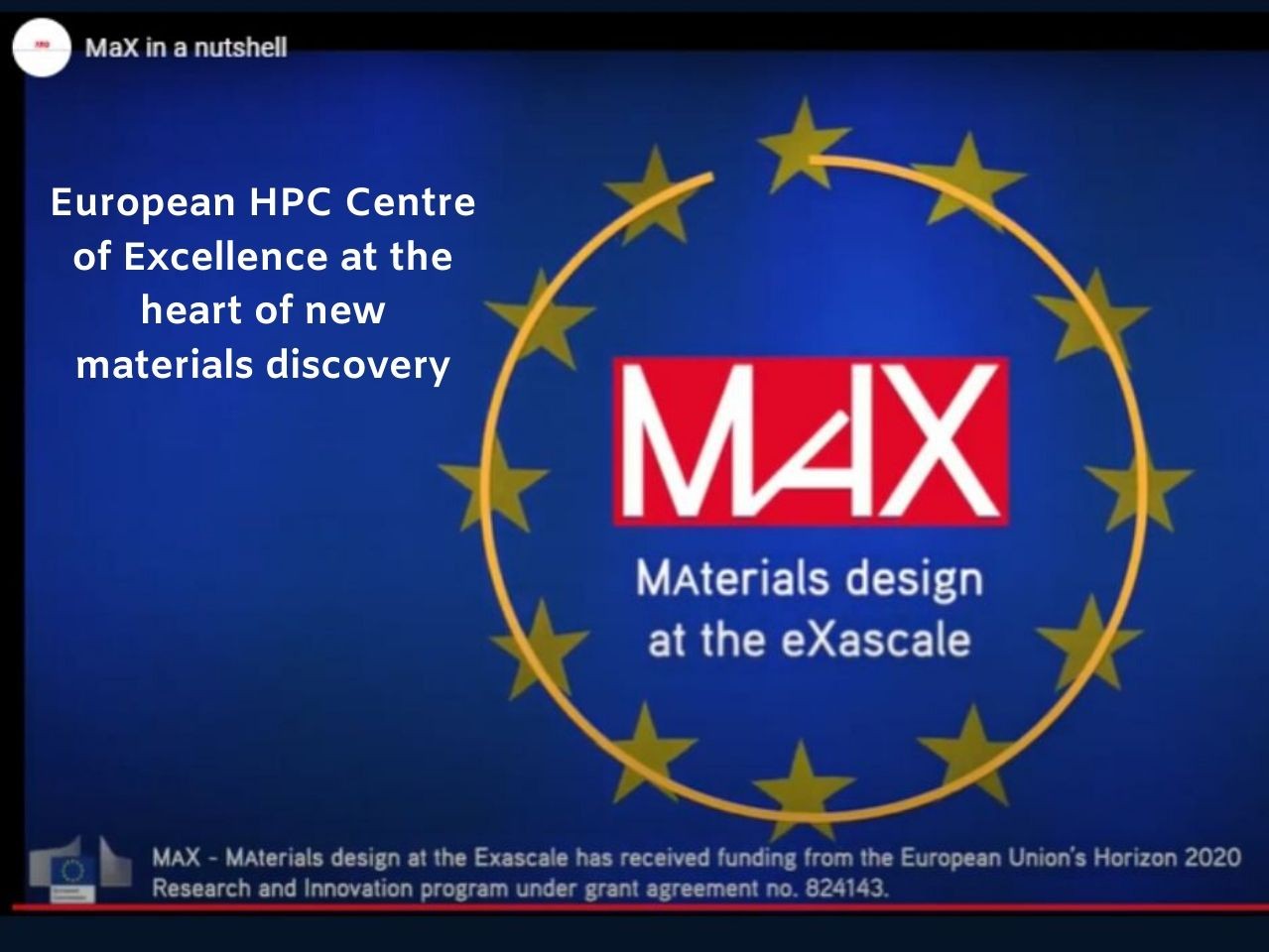European HPC Centre of Excellence at the heart of new materials discovery
PRESS RELEASE(opens in new window) 3 June 2020, Modena Italy, MaX (Materials design at the eXascale)(opens in new window) releases new video on how it’s pushing the boundaries of materials discovery as a European Centre of Excellence for High Performance Computing. Materials play a fundamental role in our daily lives and have done for many centuries, bringing new advances since the dawn of man, from the bronze age to the iron age and ever more so with the new silicon age. High Performance Computing (HPC) is at the forefront of this technological revolution with public and private investments due to deliver exascale-class systems that will put Europe among the world leaders for supercomputing, science and industry using HPC. When it comes to materials science in Europe, MaX is the Centre of Excellence for materials design at the exascale, making the discovery of metamaterials and new applications easier, faster and greener. “The MaX Centre of Excellence is paving the way for the transition to and beyond exascale technologies by taking the most successful and most widely used open-source community codes in quantum simulations of materials to the exascale and by driving sustainable software development to deal with the sudden technological disruptions expected in coming years, Prof. Elisa Molinari, MaX Director at CNR Nano at Modena (Italy) and Coordinator of MaX.” A new video(opens in new window) just published by MaX zooms in on its key advances, from enabling materials modelling and simulations to discovery and design at the frontiers of High-Performance Computing, High Throughput Computing (HTC) and data analytics technologies. The video, produced by MaX partner Trust-IT Services, shows how MaX is creating a wide range of ready-to-use open source solutions with multiple services for their existing and prospective users from science to industry, starting from fundamental physics, model approximations and computational algorithms. But it doesn’t stop here. MaX has six flagship codes especially designed for HPC that are in constant evolution towards exascale performance. - Quantum ESPRESSO(opens in new window) (Quantum Open-Source Package for Research in Electronic Structure, Simulation, and Optimisation) - YAMBO(opens in new window) - SIESTA(opens in new window) - BigDFT(opens in new window) - FLEUR(opens in new window) (Full-potential Linearised augmented plane wave in EURope) - CP2K(opens in new window) The MaX platform for workflows and data management. - AiiDA(opens in new window) (Automated Interactive Infrastructure and Database for computational science) Learn more about the MaX initiative, watch the MaX video(opens in new window) now! --- About MaX MaX - Materials design at the eXascale has received funding from the European Union’s Horizon 2020 under Grant Agreement n. 824143. Led by CNR (Italy), the MAX consortium partners includes SISSA (Italy), ICN2 (Spain), JUELICH (Germany), CEA (France), EPFL (Switzerland), Universiteit Gent (Belgium), CINECA (Italy), BSC (Spain), ETHZurich (Switzerland), E4 Computer Engineering (Italy), ARM (United Kingdom), ICTP (Italy), Trust-IT Services (Italy). For more information about MaX, or to contact the project, you are invited to engage through a variety of social media channels: www.max-centre.eu I @max_center2(opens in new window) I LinkedIn/company/max-centre(opens in new window) Press contact goes here for any information, please write to info@max-centre.eu



